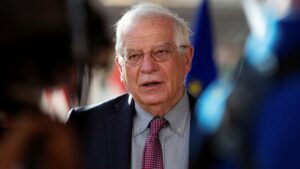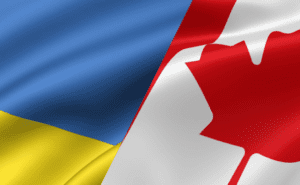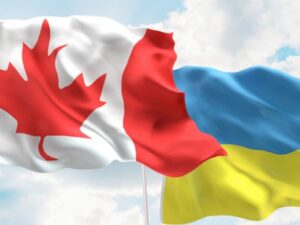
The head of European diplomacy, Josep Borrell, believes that the EU could withdraw Russian reserves stored in Europe and send them to the restoration of Ukraine.
“I would strongly advocate for it, as it is completely logical,” he said in an interview published in The Financial Times on Monday.
“The European Commission has said that restoring Ukraine could cost hundreds of billions of euros, and European capitals could consider seizing Russian assets frozen abroad to help pay for Ukraine’s rebuilding (…)”, the FT quoted the words as saying. Borrell.
At the same time, Borrell drew an analogy with Afghanistan – the United States took control of billions of dollars of assets belonging to the Central Bank of Afghanistan in order to possibly use them in part to compensate victims of terrorism, as well as to provide humanitarian assistance to the country.
“We have money in our pockets, and someone has to explain to me why it’s good to do this with Afghan money, but not with Russian money,” Borrell said.
“EU representatives have considered whether it is possible in any way to direct Russia’s reserves to the reconstruction of Ukraine, but Brussels has not moved forward with any political proposals on this topic,” the publication notes.
The FT recalls that “shortly after the start of the conflict, the EU and its allies froze hundreds of billions of dollars of foreign assets of the Central Bank of Russia.”
BORRELL, EU, FINANCIAL TIMES, REBUILD UKRAINE, RUSSIAN FUNDS

Ukraine and Canada will return to work on expanding the Free Trade Agreement (FTA) and complete work on it in the coming weeks, the Ministry of Economy announced following an online meeting between First Deputy Prime Minister of Economy Yulia Svyrydenko and Minister of International Trade, Export Promotion and Small Business Canada Mary Ng.
“During the negotiations, government representatives decided to return to work on expanding the FTA Agreement between Ukraine and Canada and complete developments over the coming weeks,” the ministry said on its website on Sunday.
According to Svyrydenko, Ukraine is counting on Canada’s support in overcoming the food crisis provoked by the blocking of Ukrainian exports through seaports.
She said that an important step towards Ukraine could be the abolition of trade duties on Ukrainian goods by Canada following the EU and the UK.
“This will help exporters increase the volume of exports of products and thereby strengthen the Ukrainian economy and the defense of our state,” Svyrydenko was quoted as saying in the press release of the ministry.

Chargé d’Affaires of the United States in Ukraine Christina Quinn said that she had returned to Kyiv.
“Just arrived in Kyiv! Glad to be back here on Victory in Europe Day. Glory to Ukraine! We are together with Ukraine,” the embassy tweeted on Sunday evening.

Canada has decided to allocate $1.5 billion to Ukraine for the year and the country has already received $0.5 billion, President of Ukraine Volodymyr Zelensky said at a press conference in Kyiv after talks with Canadian Prime Minister Justin Trudeau.
“Money is also a weapon. Canada today decided to allocate 1.5 billion for the year and we have already received 0.5 billion. This is powerful help. Canada is second only to the US in terms of aid,” he said.
At the same time, Zelensky again focused on support with weapons. “We lack heavy weapons. We all know perfectly well which powers have the technical capability, where peace reigns, weapons are not used, which powers can transfer these weapons to us,” he said.

PJSC Centravis Production Ukraine (Centravis Production Ukraine), part of the holding Centravis Ltd., has increased the production of pipes due to improved supplies of billets.
“The situation in production has slightly improved compared to last week. The extrusion line is running, the time for repairs has been reduced, as there is a positive trend in the receipt of the billet. The situation in the cold shop is also stable. Some of the mills have been launched due to the availability of billets, and the operation of two annealing furnaces has been resumed” , – stated in a letter from Chief Sales Officer (CSO) Artem Atanasov to Centravis customers on Friday.
According to him, the emphasis in production is on the production of pipes for instrumentation and automotive industry, but also heat exchange pipes and pipes for general purposes. There are no deviations in quality and metal consumption.
At the same time, it is noted that the logistics team of the company is constantly looking for the best and safest ways to deliver finished products to consumers. Members of the Board of Directors Yuriy Atanasov, Andrey Krasyuk, Oleksandr Joseph, Artem Atanasov remain in Ukraine and continue to work. Sales offices of “Centravis” around the world in Essen, Milan, Krakow, Lugano, Houston and Dubai are also open, financial and administrative departments, customer support work.
“We are pleased to inform you that the current EU protective measures against Ukraine will soon be lifted, which will allow Centravis to export its tubular products to the EU without paying a 25% protective duty indefinitely. The EU regulation in this regard will be officially approved in the near future and we expect it to be published in the Official Journal during May 2022,” Atanasov wrote.
“Centravis” is one of the world’s largest manufacturers of seamless stainless steel pipes, founded in 2000. Its production facilities are located in Nikopol (Dnepropetrovsk region). Included in the top 10 world players. Before the Russian aggression, more than 1,400 people worked at the enterprise.
Holding Centravis Ltd. was created on the basis of CJSC “Nikopol Stainless Pipe Plant”, service and trading companies LLC “Production and Commercial Enterprise “UVIS”. Its shareholders are members of the Atanasov family.
Owned by Centravis Ltd. 100% of the shares of PJSC “Centravis Production Ukraine” is located.

Canada, following the UK and the EU, is canceling all duties on imports of goods from Ukraine, Canadian Prime Minister Justin Trudeau announced after meeting with President Volodymyr Zelensky in Kyiv on Sunday.
“This is a good continuation of the initiative of the EU and Britain, which confirms the interest of developed countries to involve the Ukrainian economy in their own industrial and trade chains,” Yulia Sviridenko, First Deputy Prime Minister and Minister of Economy, commented on this decision.
She recalled that on the eve of this meeting, she also discussed with Canadian Minister of International Trade Mary Angie the whole range of economic cooperation measures that both countries intend to implement.
“For our ministry and Ambassador to Canada Yulia Kovaliv, this is an ambitious work program for this year,” Sviridenko stressed.